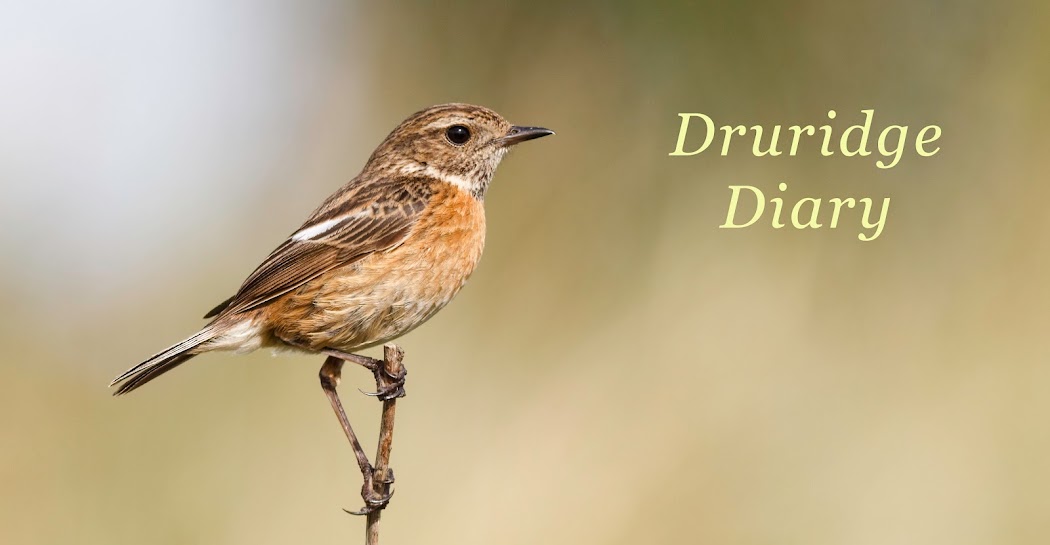The weekend started with a quick visit to the patch on Friday evening and the first record in the notebook was a male marsh harrier, trying unsuccessfully, to hunt a family party of pheasants along the bunds. Highlight of the evening came a bit later, on the beach.
I noticed a single tern had landed just in front of me on the beach. A glance through the bins showed it to be juvenile, but it had a very dark head. Through the scope it was quickly id'd as a juvenile black tern, showing a lot of black on the crown and extensively down the ear-coverts. It also had the black smudgy mark on the side of the breast from the 'collar'. I phoned Dave Elliott and it remained on the beach whilst I did. I then ran down to the car for the camera and ran back tot he dune, amazingly (given the number of nearby dog walkers) it was still there. BUT, just as I walked down the front of the dune to try and sneak up on it, a red-setter type crazy dog got to it first and I saw it last heading over the sea towards Cresswell. I did get a photo of the canine offender.
 |
| Bad dog! |
I thought the middle of July was too early for juvenile, but seemingly not. I have had juvenile black terns on the beach at Druridge in August previously. This is my first record since 2011 and only my second in the last six years.
The huge common scoter flock of midweek has dispersed, this flock of 400 were just offshore and there were at least three drake velvet scoter in with them. A steady passage of manx shearwaters was noted without about 80 north in 1 hr 30mins.
 |
| Some of the scoter flock |
Today was WeBS count day and some more quality birding. I was a bit tardy in getting to the patch after going to see some bands in Newcastle, managing an 1130 start for a seawatch. I had no-doubt missed the best seawatching, but in an hour or so managed a single bonxie, two arctic skua, 40+ manx shearwater and c200 common scoter.
 |
| grey heron on WeBS count |
Highlights of the WeBS count were a female scaup, female mandarin duck (still hanging about), marsh harrier and two little gulls.
Also around the pools were three or more yellow wagtails and a female white wag. These swallows were very photogenic in front of the little hide.
 |
| swallow |
 |
| Looking for his mate |
 |
| Who arrives with a feather |
 |
| Dark-green fritillary butterfly - still uncommon at Druridge |
135 black tern
136 bonxie


No comments:
Post a Comment